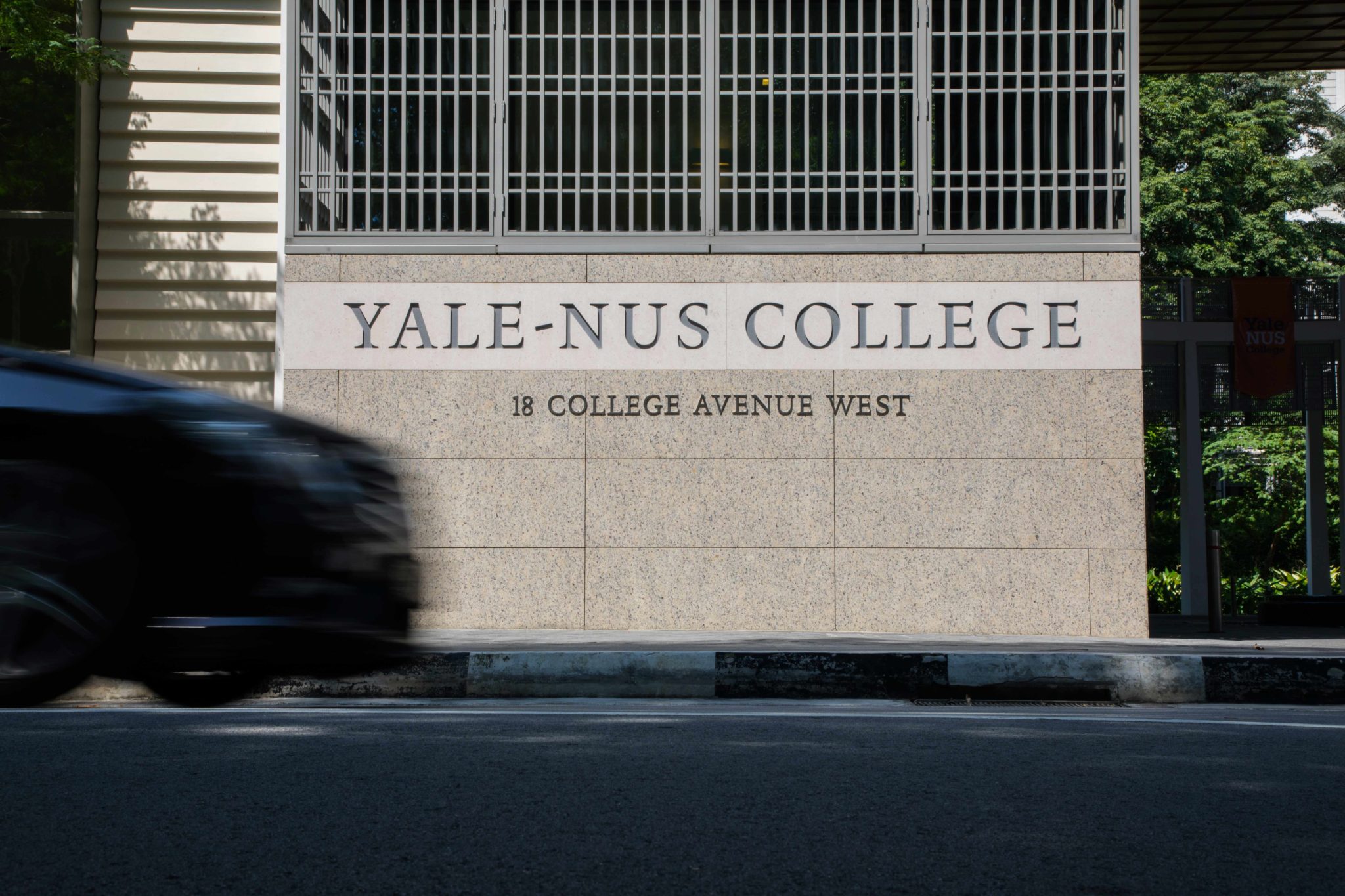
As Yale-NUS moves toward its intended student body size of 1,000, administrators at the school are reaching out to their partners in New Haven for assistance in developing the collections housed at the campus library, building on a library-level partnership between Yale and Yale-NUS that has existed since the founding of the Singapore-based liberal arts college.
Ever since a memorandum of understanding was drawn up between Yale’s library system and the yet-to-be-established library of Yale-NUS prior to the college’s launch, the two institutions have collaborated on a range of initiatives, including the expedited loan of materials from New Haven to Singapore and negotiation of access privileges for Yale-NUS students visiting the University. With a larger student body now on campus in Singapore, that partnership will extend to advising the school on how what resources to stock, and how.
“The Yale-NUS library’s collections are embryonic and our initial focus was responding to the immediate needs of faculty and students. We are now beginning to build up strong foundational collections,” said Ronald Milne, dean of educational resources and technology at Yale-NUS. “To this end, we anticipate working with someone with considerable experience at the Yale Libraries to advise on collection building, concentrating particularly on the humanities.”
While the size of their campus and library might differ, Yale-NUS students have access to a library infrastructure that is much like what peers in New Haven use. An August announcement on the library’s webpage noted that the school will be piloting a personal librarian program for first-year students this academic year, just as the program celebrates its 10th anniversary at Yale.
And though Yale-NUS may directly operate just the one library, students there have access to all eight libraries operating under the National University of Singapore, Yale-NUS’ more proximate partner in the joint venture.
The College is particularly fortunate in having access to the very substantial holdings of e-resources — e-journals, e-books and databases — to which NUS subscribes, Milne added, noting that NUS also handles license negotiations for electronic resources Yale-NUS wishes to acquire, and has provided training and professional development opportunities for the Yale-NUS library staff.
Access to electronic resources have become an increasingly central focus of librarian attention across the global higher education community — and a key source of costs. At Yale, for instance, University Librarian Susan Gibbons estimated that the additional enrollment of 800 total undergraduates in Yale College would require the Library to spend at least $1 million, slightly more than 1 percent of the library system’s total annual budget, to maintain current levels of access to electronic content.
NUS’ direct assumption of such costs on behalf of Yale-NUS is indicative of the close financial relationship between the two schools. Though the two schools are governed by separate boards, per Yale-NUS’ charter, it is officially an autonomous college under the aegis of the National University of Singapore. Yale-NUS’ endowment is managed by the investments office of the National University of Singapore, and its financial accounts are not reported separately from NUS’.
According to Milne, Yale’s assistance toward the development of Yale-NUS’ library has also been significant, The University gifted several books to Yale-NUS on the occasion of the college’s inauguration. More recently, Yale-NUS has regularly received a gift of publications from the Yale Center of British Art, and a number of books from the Linguistics Department.
Milne added that he had a positive experience when visiting New Haven this past June.
“During my visit, I was given an excellent overview of Yale Libraries’ collections and operations,” Milne said. “Susan Gibbons and her staff were very generous with their time, and were extraordinarily helpful with their advice and suggestions.”
Former Yale-NUS President Pericles Lewis, who is currently Yale’s vice president for global strategy and deputy provost for international affairs, also provided books to the library from his own collection.
In October, Yale-NUS will be hosting Peter Leonard from the Yale Digital Humanities Lab and Lindsay King from the Robert B. Haas Family Arts Library. Leonard and King will be discussing practices in digital scholarship with the Yale-NUS community, as well as the broader academic and library community in the city-state.
The school is also in the midst of considering a possible collaboration with the Peabody Museum to curate a small exhibition on campus at Yale-NUS.
Ishaan Srivastava | ishaan.srivastava@yale.edu







